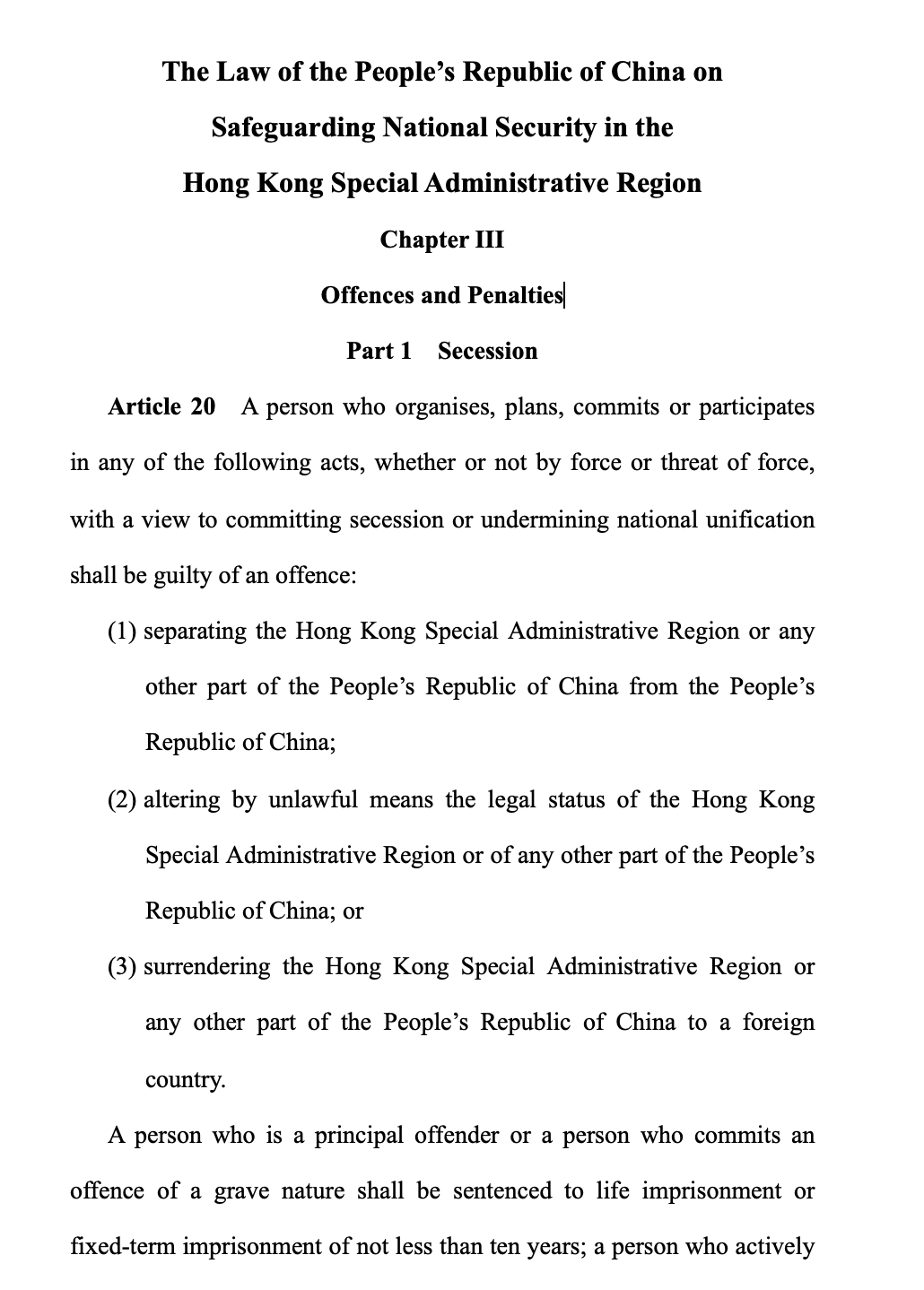
On June 30, 2020, China engaged in a secret process to enact a new national security law that would significantly impact the way Hong Kong uses the Internet, as reported by Forbes. Hong Kong’s chief executive, Carrie Lam, was not allowed to see a draft of the law before its passage. China has justified the law as a way to safeguard Hong Kong's economic development and political stability. The law prevents and punishes any act that would put China’s national security at risk, including secession, terrorism, subversion, and collusion with foreign forces. The vagueness of the four crimes means that they may be used broadly to silence any dissent or protesters in Hong Kong, including in content posted on social media, against China’s rule, according to NPR. Margaret Lewis, a law professor at Seton Hall Law School and a specialist on Hong Kong and Taiwan told NPR, “What we do know is that Beijing now has an efficient, official tool for silencing critics who step foot in Hong Kong."
The national security law is written very broadly. The law penalizes even offenses committed “outside the region by a person who is not a permanent resident of the region.” The text of the law seems to purport extraterritorial application to any person in the world who writes something in violation of the law, including Americans. If someone violates this new national security law, they would be facing a penalty of a life sentence in prison, according to Forbes. What’s more concerning is the new law authorizes China to set up a "National Security Committee" to oversee the investigation and prosecution of any violations without any judicial review. Michael C. Davis, a fellow at the Wilson Center, told NPR: “With this law being superior to all local law and the Basic Law (Hong Kong's constitution) itself, there is no avenue to challenge the vague definitions of the four crimes in the law as violating basic rights.”
Logistically, cases classified as “complex” or “serious” will be tried in mainland Chinese courts by Chinese judges, according to NPR. This would push aside Hong Kong’s judicial system, waive trial by jury, and deny public access to the trial if the case contains sensitive information. One fear is that people arrested in Hong Kong would be extradited to China to face trial.
Foreign tech firms fear that Beijing’s law will severely control or restrict the Internet that have remarkably shaped and helped Hong Kong’s growth, as Forbes reports. Just within hours of the law being passed, two opposition political parties in Hong Kong announced they were voluntarily disbanding. People in Hong Kong have been deleting their social media accounts in fear that their speech could be considered “subversive” or “secessionist”. While Twitter has refused to comment on Hong Kong users dropping off of the social platform, there have been multiple public sign-offs from some top pro-democracy figures in Hong Kong. The BBC reported on July 30, 2020 that four students in Hong Kong have been arrested for "inciting secession" on social media.
Full details of students and children arrested yesterday for "inciting secession" on social media.
— Inter-Parliamentary Alliance on China (@ipacglobal) July 30, 2020
The first arrests under Hong Kong’s so called National Security Law. https://t.co/L8BWx6MmZU
Some people in Hong Kong may try to protect their identity on social media accounts by using VPNs. In comparison to June 2020, there’s been a 321% spike in VPN’s (virtual private networks) in July. A VPN conceals a user’s online activity. One Hong Kong protester told Fortune that he downloaded a VPN after the announcement of the new law because he was “really afraid that the [Chinese Communist Party] will get my personal information.” Police have already made a handful of arrests including one man who displayed a flag advocating for Hong Kong’s independence from China. Yet, platforms like LIHKG (similar to the online messaging board – Reddit), are still active with protesters expressing their anti-government criticisms.
--written by Alfa Alemayehu